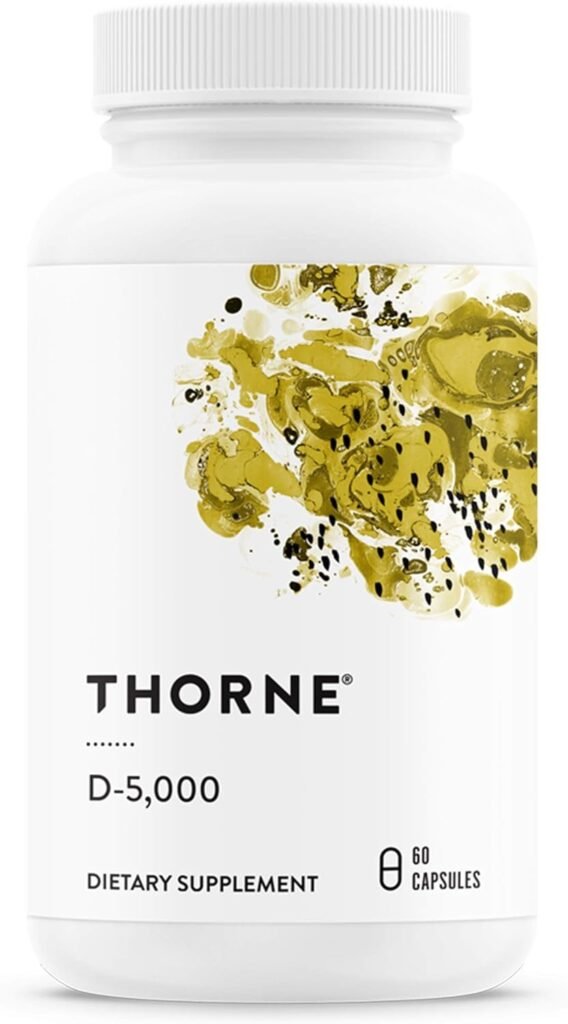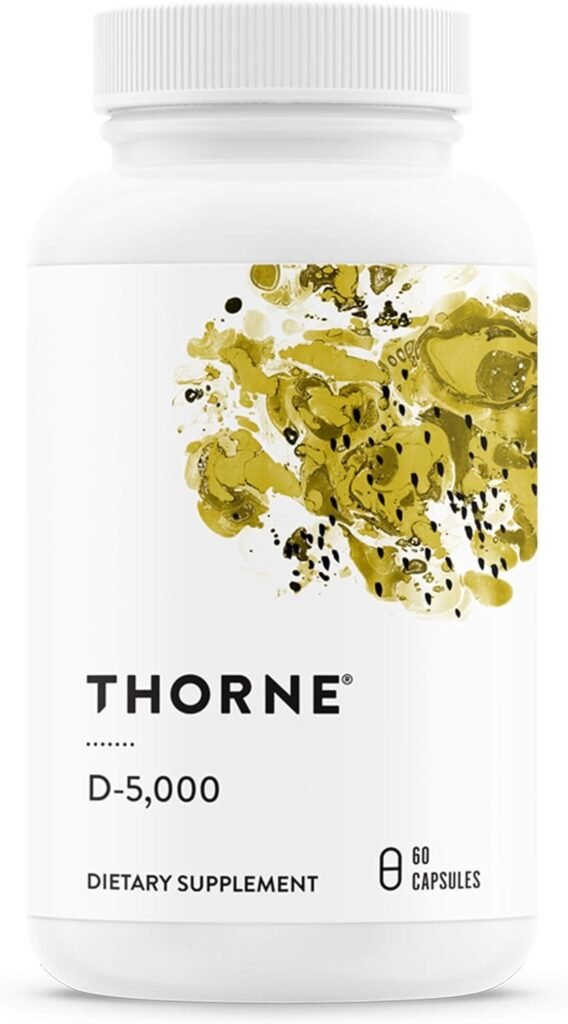Discover the crucial role of vitamin D in your health and learn effective strategies to optimize your levels for improved well-being and immunity.
The Power of Vitamin D: How to Optimize Your Levels for Vibrant Health
Did you know that one out of four people in the United States lacks enough vitamin D? This vitamin is key for strong bones, a healthy immune system, and overall well-being. Getting enough vitamin D can help prevent osteoporosis and may lower the risk of some cancers and heart disease.
Vitamin D is made when your skin gets sunlight and is found in foods like fatty fish, egg yolks, and fortified dairy. But, many people, especially in places with little sunlight, find it hard to keep their vitamin D levels right. It’s important to know how to get enough of this vitamin for your health.

Key Takeaways:
- Vitamin D is a vital nutrient that plays a crucial role in maintaining strong bones, supporting the immune system, and promoting overall well-being.
- One out of four people in the United States has inadequate blood levels of vitamin D, despite its importance for health.
- Optimizing your vitamin D levels can provide numerous benefits, including reducing the risk of osteoporosis, certain types of cancer, and heart disease.
- Vitamin D can be obtained through sun exposure, dietary sources, and supplements, but many people struggle to maintain optimal levels.
- Understanding the importance of vitamin D and how to ensure you’re getting enough of it is crucial for your overall health and well-being.
Understanding Vitamin D: What It Is and Why It’s Essential
Vitamin D is a key nutrient for our health. It’s a fat-soluble vitamin that our bodies can make when our skin is in the sun. We can also get it from food and supplements.
Vitamin D: A Fat-Soluble Vitamin with Vital Functions
Vitamin D is crucial for many body functions. It helps with calcium absorption, keeps bones strong, supports the immune system, and helps cells grow. It makes sure our bones get enough calcium and phosphate for strong bones.
The Role of Vitamin D in Calcium Absorption and Bone Health
Not having enough vitamin D can make bones weak and break easily. People without enough vitamin D might lose a lot of calcium from their bones. But, a study found that vitamin D supplements didn’t help prevent fractures in healthy people.
Adults need 600 IU of vitamin D daily, and those over 70 need 800 IU. Doctors often suggest vitamin D3 over D2 because it works better and is more active.
“Taking too much vitamin D in the form of supplements can be harmful. Children age 9 years and older, adults, and pregnant and breastfeeding women who take more than 4,000 IU a day of vitamin D might experience adverse effects like nausea, vomiting, poor appetite, weakness, confusion, kidney stones, and heart rhythm problems.”
Signs and Symptoms of Vitamin D Deficiency
Vitamin D deficiency is a common health issue that affects many people. This vitamin is important for our bodies and not having enough can cause serious symptoms. It’s key to know the signs of vitamin D deficiency to stay healthy.
Fatigue and muscle weakness are big signs of vitamin D deficiency. People with low levels might feel very tired and find everyday tasks hard. They might also have weak muscles in their legs, which can make them more likely to fall and break bones, especially as they get older.
Bone pain and a higher risk of fractures are also signs of not having enough vitamin D. Vitamin D helps our bodies use calcium, which keeps our bones strong. Without enough vitamin D, bones get weaker, making them more likely to break and increasing the chance of osteoporosis.
Low vitamin D levels can also affect how we feel and our immune system. People with low levels might feel sad or anxious and could get sick more easily because their immune system is weaker.
Some people are more likely to have vitamin D deficiency. These include older adults, people who don’t get much sun, those with darker skin, and people with certain health conditions that affect how the body absorbs fat. These groups need to pay extra attention to their vitamin D levels and take steps to keep them healthy.
| Vitamin D Deficiency Levels | Description |
|---|---|
| Mild Deficiency | Less than 20 nanograms per milliliter of 25-hydroxyvitamin D in the blood |
| Moderate Deficiency | Less than 10 nanograms per milliliter of 25-hydroxyvitamin D in the blood |
| Severe Deficiency | Less than 5 nanograms per milliliter of 25-hydroxyvitamin D in the blood |

THORNE Vitamin D-5000 – Vitamin D3 Supplement – Support Healthy Bones, Teeth, Muscles, Cardiovascular, and Immune Function
The Best Dietary Sources of Vitamin D
Vitamin D is a fat-soluble nutrient crucial for our health. It supports bone health and immune function. While sunlight helps our bodies make vitamin D, eating foods rich in it is also key. Let’s look at the top foods for getting vitamin D.
Fatty Fish: A Natural Powerhouse of Vitamin D
Fatty fish like salmon, tuna, and mackerel are packed with vitamin D. A 3.5-ounce piece of farmed Atlantic salmon gives up to 66% of what you need daily. Wild salmon can give even more, up to 160% of your daily value. Herring and sardines are also great, offering 27% and 24% of your daily value per serving.
Fortified Foods: An Alternative Source of Vitamin D
Knowing the signs of vitamin D deficiency helps people take action to stay healthy. By addressing this issue, people can feel better and lower their risk of health problems.
Many foods are also fortified with vitamin D to help meet our needs. Cow’s milk, plant-based milks, cereals, and juices are often fortified. For example, a cup of fortified cow’s or soy milk has about 100-119 IU of vitamin D. Fortified orange juice can have up to 100 IU per cup.
While eating these foods helps get vitamin D, some people might need supplements. This is especially true in winter or where sunlight is scarce.

THORNE Vitamin D-5000 – Vitamin D3 Supplement – Support Healthy Bones, Teeth, Muscles, Cardiovascular, and Immune Function
| Food | Vitamin D (IU per serving) | % of Daily Value |
|---|---|---|
| Farmed Atlantic Salmon (3.5 oz) | 526 IU | 66% |
| Wild-caught Salmon (3.5 oz) | Up to 1,300 IU | Up to 160% |
| Herring (3.5 oz) | 214 IU | 27% |
| Sardines (3.5 oz) | 193 IU | 24% |
| Cod Liver Oil (1 tsp) | 450 IU | 56% |
| Canned Light Tuna (3.5 oz) | 269 IU | 34% |
| Egg Yolk (1 large) | 37 IU | 5% |
| Fortified Cow’s Milk (1 cup) | 115 IU | 14% |
| Fortified Soy Milk (1 cup) | 100-119 IU | 12-15% |
| Fortified Orange Juice (1 cup) | Up to 100 IU | 12% |
The table shows the vitamin D in different foods. It highlights the high levels in fatty fish and the role of fortified foods in boosting our vitamin D intake.
The Essential Role of Vitamin D: How to Optimize Your Levels for Better Health
Keeping your vitamin D levels in check is key for good health. Vitamin D boosts the immune system, fights inflammation, and lowers the chance of autoimmune diseases. It’s also crucial for strong bones, preventing osteoporosis. Plus, vitamin Dcan lower the risk of cancer, heart disease, and mental decline.
Getting enough vitamin D comes from the sun, food, and supplements if needed. This can help keep you healthy and cut down on chronic diseases. By knowing how vitamin D helps and keeping levels right, you can boost your health and dodge many health problems.
| Health Benefit | Impact of Optimal Vitamin D Levels |
|---|---|
| Immune System | Reduces inflammation and risk of autoimmune disorders |
| Bone Health | Helps prevent conditions like osteoporosis |
| Cancer Risk | Lower risk of certain types of cancer |
| Cardiovascular Health | Lower risk of heart disease |
| Cognitive Function | Lower risk of cognitive decline |
By boosting vitamin D levels, you’re taking a big step towards better health.
“Ensuring adequate vitamin D levels through a combination of sun exposure, dietary sources, and supplementation, if necessary, can help optimize health and reduce the risk of various chronic diseases.”
Sun Exposure: A Natural Way to Boost Vitamin D Levels
Our skin makes vitamin D when it gets ultraviolet (UV) rays from the sun. How much vitamin D we make depends on things like the time of day, season, where we live, our skin color, and if we use sunscreen. Getting enough sun is a good way to get more vitamin D, but we must be careful not to increase our skin cancer risk.
Balancing Sun Exposure and Skin Cancer Risk
Experts say to get some sun without sunscreen, but then use protection to avoid too much sun. In places like Valencia, Spain, 8 to 10 minutes of sun at noon in spring and summer can give us enough vitamin D. In winter, you need 2 hours of sun at noon with less skin exposed.
Where you live also changes how much sun you need. For example, someone in Miami in summer only needs 3 minutes of sun at noon to get enough vitamin D. But in Boston in winter, you’d need over 2 hours of sun at noon to get the same amount.
Using sunscreen can lower how much vitamin D your skin makes. But, this effect depends on the sunscreen type, how much you apply, and its SPF. Most of our vitamin D comes from the sun, making it a great way to increase our levels.
“Maintaining higher serum vitamin D levels improves the prognosis of multiple systemic diseases.”

THORNE Vitamin D-5000 – Vitamin D3 Supplement – Support Healthy Bones, Teeth, Muscles, Cardiovascular, and Immune Function
Vitamin D Supplements: Types and Considerations
For people who can’t get enough vitamin D from the sun or food, supplements are a good choice. Supplements come in two main types: D2 (ergocalciferol) and D3 (cholecalciferol). D3 is better at raising and keeping up serum 25(OH)D levels. When taking vitamin D supplements, follow the daily intake guidelines to avoid too much. Also, take it with a meal or snack that has fat for better absorption.
About 41.6% of people in the U.S. don’t have enough vitamin D. This is a big problem for minorities, with 82.1% of blacks and 69.2% of Hispanics lacking it. Older adults are also at high risk, which can lead to weaker bones, more falls, and fractures.
Vitamin D lack is linked to many health problems, like heart disease, diabetes, cancer, dementia, and autoimmune diseases. In fact, a study showed that 96% of heart attack patients were low in vitamin D. On the other hand, enough vitamin D can help with bone health, immune function, and might lower disease risk.
- The U.S. National Academy of Medicine says the safe upper limit for vitamin D is 4,000 IU per day.
- Experts say it’s important to also get enough vitamin A and K when taking vitamin D3 supplements.
- Too much vitamin D from supplements can cause health problems like frequent urination, feeling tired, vomiting, stomach pain, dehydration, confusion, and thirst.
When thinking about vitamin D supplements, talk to a healthcare professional to find the right dosage and type for you. Getting enough vitamin D is key to staying healthy and feeling good.
“Vitamin D is key for strong bones, a healthy immune system, and lowering the risk of chronic diseases. Getting enough through sun, food, and supplements can greatly improve your health.”
Testing and Interpreting Vitamin D Levels
Understanding Serum 25(OH)D Levels
Vitamin D levels are usually checked like this:
- Deficiency: Serum 25(OH)D levels below 30 nmol/L (12 ng/mL)
- Insufficiency: Serum 25(OH)D levels between 30-50 nmol/L (12-20 ng/mL)
- Optimal: Serum 25(OH)D levels of 50 nmol/L (20 ng/mL) or higher
Remember, the accuracy of vitamin d testing can change based on the lab and test used. It’s important to work with a healthcare provider to understand your results correctly.
| Vitamin D Level | Interpretation | Recommended Action |
|---|---|---|
| Less than 30 nmol/L (12 ng/mL) | Deficiency | Take vitamin D supplements, eat more foods with vitamin D, and get more sun |
| 30-50 nmol/L (12-20 ng/mL) | Insufficiency | Take vitamin D supplements, eat more foods with vitamin D, and get more sun |
| 50 nmol/L (20 ng/mL) or higher | Optimal | Keep doing what you’re doing |
By knowing your vitamin d testing results and talking to your healthcare provider, you can improve your vitamin D levels. This helps support your health and well-being.
Potential Health Benefits of Optimal Vitamin D Levels
Having the right amount of vitamin D is linked to many health benefits. It helps your body absorb calcium and make strong bones. This is key in preventing osteoporosis and lowering the chance of breaking bones, especially for older people.
Bone Health and Osteoporosis Prevention
Vitamin D is vital for keeping bones strong. It helps your body take in calcium and phosphorus, which are important for bone density. Studies show that taking vitamin D (up to 800 IU) with calcium (at least 500 mg) can slightly increase bone density in older adults.
But, a big study with over 25,000 adults found that taking vitamin D didn’t lower the risk of breaking a bone. This shows we need more research to understand its effects fully.
Immune Function and Disease Risk
Vitamin D also helps your immune system work better. This might lower the risk of autoimmune diseases, infections, and some cancers. It could also help with heart health, brain function, and mood.
“Vitamin D is essential for calcium absorption and bone mineralization, playing a crucial role in the prevention of osteoporosis and reducing the risk of fractures.”
Not having enough vitamin D can cause rickets in kids, leading to weak bones, misshapen bones, and slow growth. People with depression often have low vitamin D levels, showing its link to mental health. It’s also key for preventing and managing arthritis.
In summary, having enough vitamin D is good for many health areas, like bone, immune, heart, and mental health. It’s important to know how vital this nutrient is and make sure you get enough of it for better health.
Conclusion
Vitamin D is key for good health and well-being. It helps with bone health, immune function, and more. By knowing how to boost your vitamin D levels, you can improve your health.
Getting enough vitamin D is easy with sun exposure, food, or supplements. This is important for a healthy life.
The benefits of vitamin D are many. It helps with calcium absorption and bone health. It also boosts immune functionand lowers health risks.
Many adults lack enough vitamin D, especially those who work indoors a lot. By adding vitamin D sources to your day, you can keep your levels right. This leads to better health and a brighter future.
FAQ
What is vitamin D and why is it essential?
Vitamin D is a fat-soluble vitamin crucial for health and well-being. It helps the body absorb calcium. This supports strong bones and teeth. It’s also key for immune function, muscle health, and brain function.
What are the symptoms of vitamin D deficiency?
Signs of vitamin D deficiency include feeling tired, weak muscles, bone pain, and a higher risk of breaking bones. It can also cause mood changes, weaken the immune system, and make you more likely to get infections.
What are the best dietary sources of vitamin D?
Salmon, tuna, and mackerel are top sources of vitamin D. Many foods are also fortified with it, like milk, plant-based milks, cereals, and some juices and yogurts.
How can I optimize my vitamin D levels?
To keep your vitamin D levels right, combine sun exposure, diet, and supplements if needed. Be careful with sun exposure to avoid skin cancer risks. Always talk to a healthcare provider to find the right amount of vitamin D for you.
What are the potential health benefits of optimal vitamin D levels?
Having enough vitamin D can lead to better bone health and lower osteoporosis risk. It can also boost immune function and lower autoimmune disorder risk. Plus, it might help with heart health, brain function, and mood.
How can I get my vitamin D levels tested?
To check your vitamin D levels, measure the serum concentration of 25-hydroxyvitamin D [25(OH)D]. This is the main form of vitamin D in your body. Always consult a healthcare provider to understand the results correctly, as testing accuracy can differ.
Can vitamin D help with COVID-19?
Research is ongoing on vitamin D and COVID-19. Some studies hint that enough vitamin D might help immune function and lower respiratory infection risk. But, we need more studies to fully grasp the link between vitamin D and COVID-19.
Source Links
- https://ods.od.nih.gov/factsheets/VitaminD-HealthProfessional/
- https://ods.od.nih.gov/factsheets/VitaminD-Consumer/
- https://www.cuimc.columbia.edu/news/whats-deal-vitamin-d
- https://www.mayoclinic.org/drugs-supplements-vitamin-d/art-20363792
- https://www.webmd.com/diet/vitamin-d-deficiency
- https://www.healthline.com/nutrition/vitamin-d-deficiency-symptoms
- https://nutritionsource.hsph.harvard.edu/vitamin-d/
- https://www.healthline.com/nutrition/9-foods-high-in-vitamin-d
- https://www.medicalnewstoday.com/articles/161618
- https://www.healthline.com/nutrition/how-to-increase-vitamin-d
- https://www.insidetracker.com/a/articles/vitamin-d-and-sun-exposure-what-you-need-to-know-to-optimize-your-levels
- https://www.uclahealth.org/news/article/ask-the-doctors-round-sun-exposure-vital-to-vitamin-d-production
- https://www.ncbi.nlm.nih.gov/pmc/articles/PMC10239563/
- https://www.healthline.com/nutrition/vitamin-d-101
- https://www.healthline.com/health/food-nutrition/benefits-vitamin-d
- https://www.webmd.com/vitamins/ai/ingredientmono-929/vitamin-d
- https://medlineplus.gov/lab-tests/vitamin-d-test/
- https://www.testing.com/tests/vitamin-d-tests/
- https://longevity.stanford.edu/lifestyle/2024/03/11/vitamin-d-benefits-sources-deficiency/
- https://www.everydayhealth.com/vitamin-d/vitamin-d-health-benefits-what-it-can-cant-your-body/
- https://www.discovermagazine.com/lifestyle/17-vitamin-d3-benefits-everyone-should-know
- https://www.ncbi.nlm.nih.gov/pmc/articles/PMC6893762/
- https://mitohealth.com/blog/vitamin-d-important-working-adults
- https://link.springer.com/article/10.1007/s40265-023-01875-8








